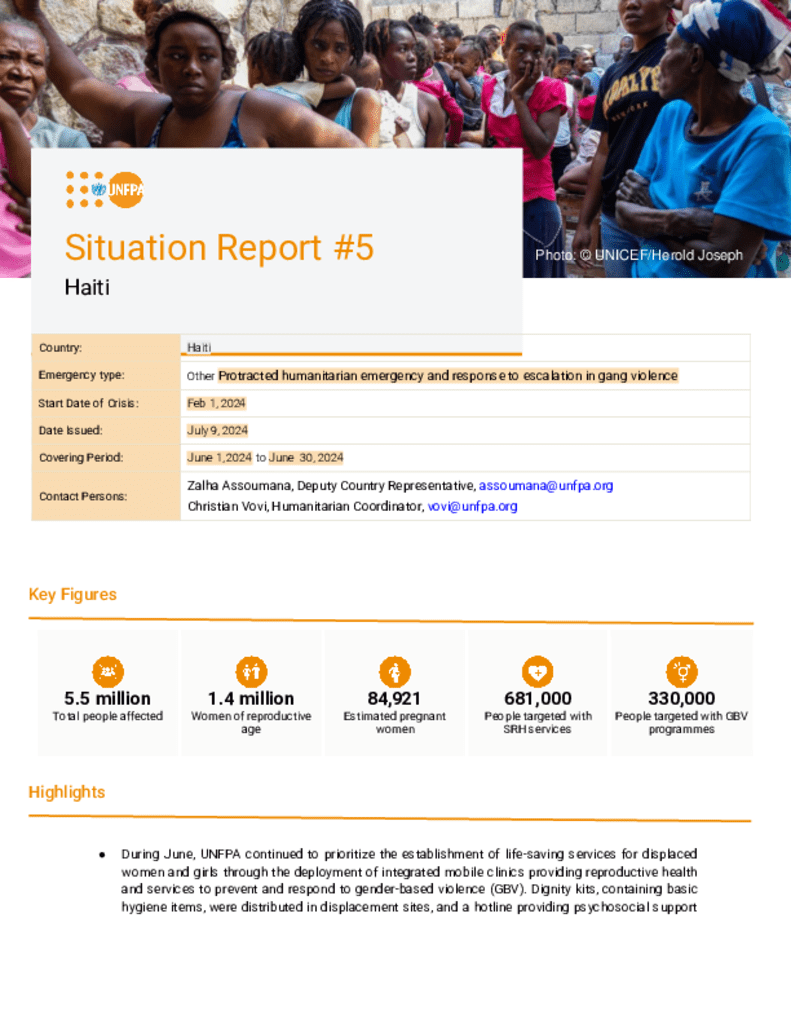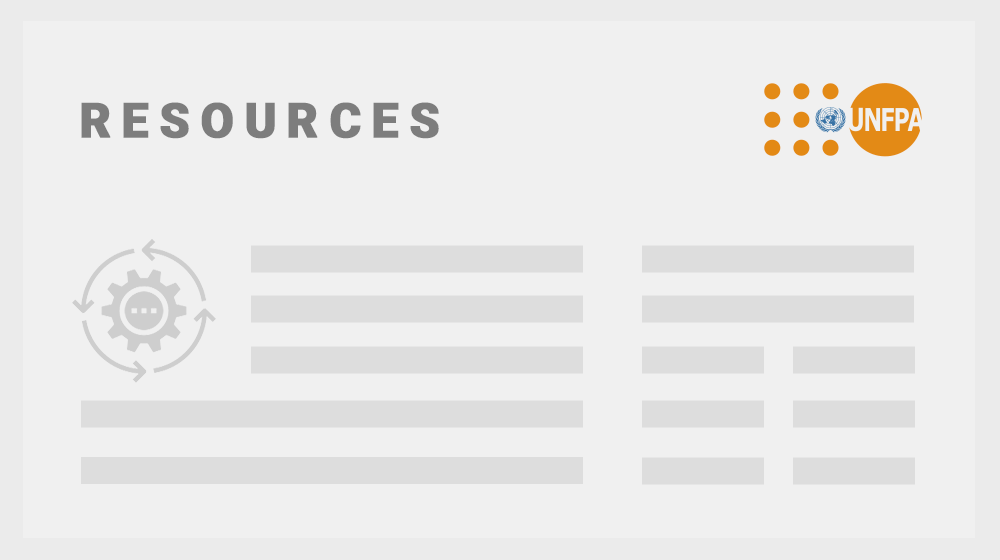
Despite some improvement in the security situation, humanitarian access in parts of the Metropolitan Area of Port-au-Prince (MZPAP) remains challenging, impacting service provision. Nearly 75 percent of displacement sites are in areas controlled by gangs. The planned deployment of mobile clinics, distribution of dignity kits, and GBV safety audits have been suspended at times due to attacks by armed gangs. During the reporting period, clashes between armed gangs and the Haitian National Police, supported by the Multinational Security Support (MSS) mission, were reported in some areas. The first Kenyan contingent of the Multinational Security Support (MSS) mission arrived on 25 June, with 200 officers deployed so far, aiming to support the Haitian National Police against well-armed gangs controlling over 80 percent of Port-au-Prince.
Violence Port-au-Prince has prevented pregnant women from accessing maternity care, with many health facilities looted or destroyed, including the State University Hospital. Only 20 percent of facilities in the capital are operating normally. Women forced from their homes face numerous risks, including limited access to social services, hygiene facilities, and psychological assistance. The number of people needing GBV services has risen to 841,000.
Between March and June 2024, the number of internally displaced people (IDPs) in Haiti increased by 60 percent, from 362,000 to 578,000, primarily due to worsening security in the MZPAP. Over 310,000 of these IDPs are women and girls.
As Storm Beryl became the first hurricane of the 2024 Atlantic season, UNFPA and partners activated a contingency plan, prepositioning 2,000 dignity kits, updating GBV referral pathways, and coordinating with shelter and camp management sectors.
In the reporting period, UNFPA focused on providing life-saving services for displaced women and girls in Haiti. Integrated mobile clinics offered reproductive health and GBV services, while dignity kits with basic hygiene items were distributed at displacement sites. A hotline for psychosocial support and GBV referrals continued to operate. Four mobile and temporary women and girls’ safe spaces were established in displacement sites:
- Strengthened health facilities to provide reproductive health and GBV services, including safe delivery, emergency obstetric care (EmONC), clinical management of rape, family planning, and STI prevention and treatment.
- Distributed Inter-Agency Reproductive Health kits to hospitals and health facilities across Haiti.
- Supported health facilities reported 258 deliveries, including 74 caesarean sections.
- Deployed a mobile clinic to Delmas 19 displacement site, providing reproductive health and GBV services to 43 people with disabilities.
- Established four temporary women and girls’ safe spaces at displacement sites, serving 208 women and girls with counseling and psychosocial support.
- Accommodated 55 women and girls at risk of GBV in UNFPA-supported shelters, offering psychosocial and material support.
- Supported a hotline that received an estimated 120 calls.
- Collaborated with Fondation pour la Santé Reproductrice et l’Education Familiale to distribute 1,000 dignity kits at displacement sites.




